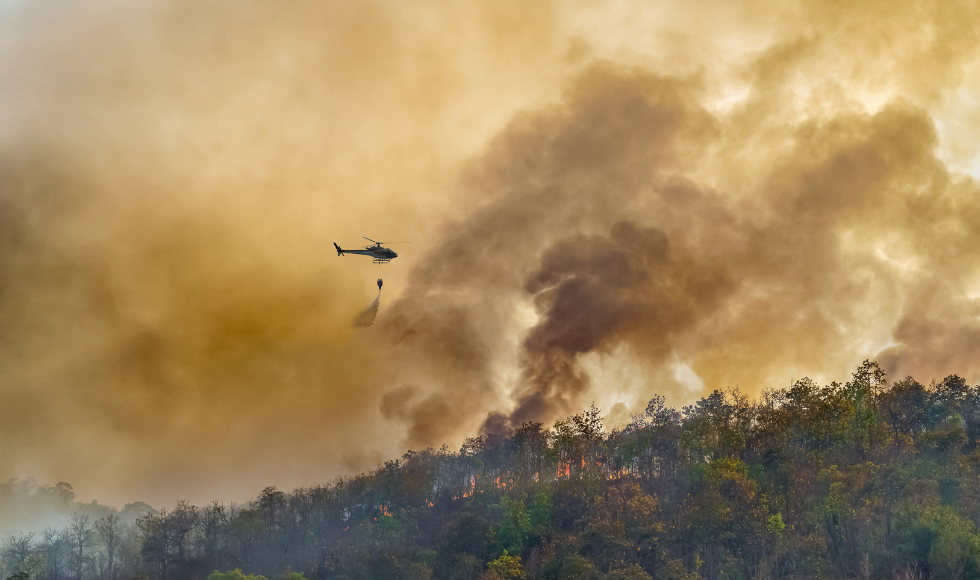Mental-health resource hub supports Canadians facing wildfires and other emergencies

The McMaster-led CanEMERG hub offers tools and resources to help Canadians navigate potentially traumatic events — like the ongoing wildfires — and to help them locate free, evidence-informed supports across the country.
BY Adam Ward, Faculty of Health Sciences
August 12, 2024
McMaster researchers have created an online hub of mental health resources to help Canadians navigate climate-related disasters and emergencies, such as wildfires, flooding and other traumatic incidents.
The CanEMERG website, launched this month, brings together important supports and tools that can help Canadians assess their current mental health situation and navigate to free, publicly available assistance.
The website also provides mental health and well-being resources to assist in managing common responses to stress and trauma. The initiative is being led by McMaster University’s Trauma and Recovery Lab and was made possible with funding from the Public Health Agency of Canada.
“This is psychological first aid, similar to how we would use a bandage or medication when someone is injured,” says Margaret McKinnon, a professor with McMaster’s department of Psychiatry and Behavioural Neurosciences and the principal investigator of the Trauma and Recovery Lab.
“What we’re doing here is providing mental health tools in the moment when people are often in a state of not knowing where to turn for help.”
Canadians are facing increasingly threatening situations like natural disasters and pandemics, which is why McKinnon and her team wanted to create a one-stop source for mental health resources.
At launch, the CanEMERG site will include:
- Wellness Support Navigation Tool: This tool is intended to rapidly navigate Canadians to free, publicly available mental health and wellbeing supports that will assist them with coping with the ongoing wildfires and other emergencies.
- Mental Health Assessment Tool: Developed by the Canadian Armed Forces, this mental health assessment tool will assist Canadians in identifying healthy, reacting, injured and ill responses to emergency situations. This tool also provides information about when to reach out for help.
- Mental Health and Wellbeing Factsheet: This tool will provide information about core principles and techniques related to maintaining mental health and wellbeing during an emergency.
- Mental Health Toolkit: Containing text instructions and animated examples, this toolkit will provide Canadians with evidence-based tools and resources (e.g., mindful breathing; grounding) to assist in maintaining their mental health and wellbeing during an emergency.
“Most people aren’t trained on how to respond to a traumatic incident. We often can be experiencing thoughts and feelings that feel very unfamiliar,” says McKinnon.
“Things may feel out of our control and we may feel physiological responses like nausea, heart palpitations and not know what those are or how to manage them.
“What we’re trying to do here is help people understand what common responses to trauma looks like and how to deal with it.”
McKinnon and her team plan to expand the CanEMERG initiative with even more resources to meet the growing needs of Canadians.
“Across Canada, we continue to see the ongoing devasting impacts of climate change, wildfires, and other extreme weather events. That’s why supporting projects that help build resilient communities is a top priority for our government,” says Ya’ara Saks, federal minister of Mental Health and Addictions, who announced funding for the initiative earlier this year.
“The mental health impacts of emergencies are different for everyone,” Saks explains.
“This project acts as a mental health first aid kit, providing quick, free online access to important resources like coping strategies, grounding techniques, and crisis support. It’s designed to help everyone, including frontline workers.”


